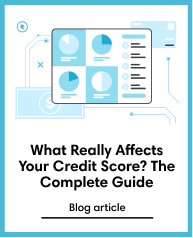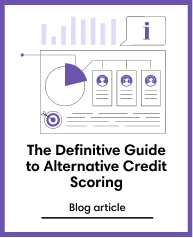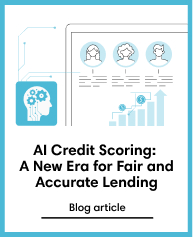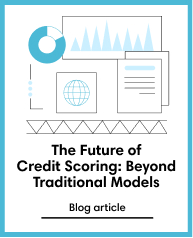Credit Scoring
Sep 15, 2021
It’s time for fairer credit scoring for every American
Subscribe to our newsletter
It’s strikingly unfair: the Americans who most need credit find it hardest to access it.
In 2019, the New York Federal Reserve released a research report that painted a bleak picture of financial inclusion in the United States.
Too many Americans have no access to credit
The FICO score — which is used in 90 percent of all consumer credit decisions in the US — has long been a source of frustration for many Americans.
To put it bluntly, FICO has not been a friend to Americans who live in rural areas, those on low wages, and those who struggle to find full- or part-time jobs.
And the credit industry as a whole has particularly failed people of colour across the country. The New York Federal Reserve report mentioned earlier shows:
- More than 20 percent of Mississippi residents live in counties assessed as ‘credit insecure’, higher than any other state in the country
- About 15 percent of Louisiana residents live in counties where it’s hard to get credit
- The counties with least credit access are those where almost 60 percent of the population is not white.
The credit industry in the United States should be ashamed of these figures. This is not good enough. It’s clearly long past time for a radical shake-up of credit scoring and reporting.
Fraudsters’ time may be up
Widespread financial exclusion is not the only problem that plagues the path to fair and equal credit in the United States. The other is fraud.
It’s about so much more than stolen identities. Lenders in the United States have long struggled to deal with phony or synthetic identities. As Angela Strange explained, fraudsters have been able to randomly pick almost any nine-digit number that doesn't start with nine to land upon a legitimate social security number that lets them apply for a loan.
As Strange detailed, the first-time the lender may catch this person as credit invisible when they ask bureaus about them — but then the next lender will ping the credit bureau and the credit bureau will ‘count’ the first-time lender’s previous enquiry as a record. This scant information has enabled fraudsters to get their foot in the door.
Can smart data turn the tide?
Wouldn’t things be better if we had an unbiased, fair scoring system that cannot be falsified by fraudsters?
Enter, smart data. If we use smart data well, we have the potential to create a society where the fear of rejection is the last thing in under-served borrowers’ minds. Similarly, lending businesses will have the confidence to say yes, without fear of being cheated by fraudsters.
Financial institutions can confidently assess the creditworthiness of their customers even in the absence of a reliable credit bureau score, by using alternative data, which is gathered with the consent of potential borrowers.
Credolab’s credit scoring can find creditworthy customers in any market and for any unsecured lending product. The algorithm calculates real-time credit risk scores by looking at the way each customer uses their smartphone, not where they live or what kind of gig they do to make a living.





